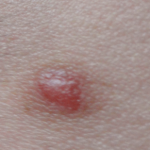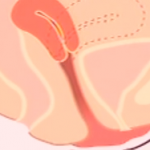The use of tobacco in varied forms like cigars, cigarettes, spit or smokeless tobacco, snuff, etc., results in the passage of nicotine into the body which is then process into cotinine in varied organs like the lungs, liver, etc. Besides nicotine, cotinine is also widely accepted as a valid biomarker and indicator of tobacco use. Cotinine can be with tests like hair, urine, blood, and saliva tests.
In order to ascertain ‘how long does cotinine stay in the system,’ one has to take into account varied factors like an individual’s rate of metabolism, body mass, indulgence in physical activities, age, hydration state, and presence of any medical ailments. Other factors that may be responsible include the type and amount of tobacco used by the person. It is thus quite difficult to mark a time limit with regards to the detection of cotinine in the system.
Certain kinds of tests can detect cotinine for 10 days, while others can do it for almost 90 days or even more. Urine and saliva tests can typically detect the nicotine component for 1 to 3 days, while hair follicle tests can validate cotinine presence for nearly 3 months.
Cotinine and its levels remain detectable in light smokers for 2 to 3 days; in medium smokers for about five days; and in heavy smokers for about ten days. The chemical may remain detectable for over ten days in the bodies of those who chew tobacco. Cotinine can be eliminated from the system by regular exercising, intake of lots of water and other fluids, and a balanced and health diet with garlic, onion, and egg yolk, etc.
Cotinine detection in the system: Different tests
Blood test, urine test, and saliva test are the 3 main types of tests that are used to find the presence of cotinine in the system.
1. Blood Test
- The presence of cotinine in the system can be ascertained via qualitative and/or quantitative blood tests. Such tests can help find out varied aspects such as the levels of cotinine in the body, its absence in the sample of blood, etc. These tests are very sensitive and hence can detect cotinine in the body even when it is present in trace amounts.
- Time period for which cotinine remains detectible in blood: After nicotine is processed into cotinine, it passes into the bloodstream. Cotinine and other nicotine components then get eliminated from blood via varied processes of liver detoxification. It may be noted that these processes are slower as compared to the processes of waste elimination carried out by the kidneys.
- In most cases, blood tests can detect cotinine in the system for 1 to 3 days from the last known use of nicotine based products like nicotine patches, nicotine gum, cigarettes, snuff, etc. The cotinine detection times via blood tests can vary according to varied factors like age, tobacco use, etc. Thus, based on the above factors, blood tests can detect the chemical for 1 to 10 days it becomes undetectable.
- False positive results can occur due to varied causes such as lab errors; eating thiocyanate-containing foods like cabbage, broccoli, almonds, and mustard, etc.; using medications such as amphetamines; and working at metal refining factories that offer increased exposure to thiocyanate.
2. Urine Test
- Different kinds of urine tests for cotinine detection in the system are widely available for purchase without any prescription. This is one of the reasons why it is one of the most popular tests. Dip the urine test strip into a urine specimen for 5 minutes and later check the results for presence of cotinine. The accepted standard cutoff level is 200ng/ml.
- Time period for which cotinine remains detectible in urine: Nicotine gets metabolized and processed into cotinine after it enters the body and later gets removed from the body with urine and other waste matter. A urine test for cotinine detection will detect the chemical and other toxins present in nicotine for around 3 to 4 days after nicotine-based products were last used. However, this timeframe may vary in certain cases. Cotinine present in menthol cigarettes tend to remain in the system for longer periods and may get completely removed from the body in about 2 weeks or even more. Also, in such cases, the urine test may return positive results for cotinine for 15 to 20 days for passive smokers.
3. Saliva Test
- The saliva test offers the most accurate results of cotinine presence. It also provides data about the approximate amount of tobacco that was used. The test can find nicotine content between 0 and 2,000ng/ml.
- The test involves soaking of the test strip into a sample of saliva for twenty minutes. The strip will react with cotinine and help determine the amount of nicotine consumed and the cotinine levels in the system.
- Time period for which cotinine remains detectible in saliva: Cotinine has a longer half-life than nicotine. It can be detected in saliva for 10 hours or more, or sometimes for two to four days.

